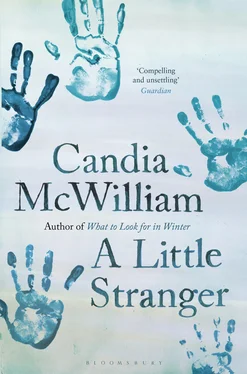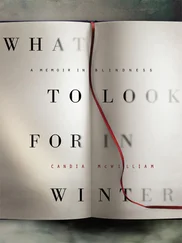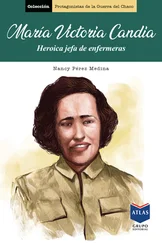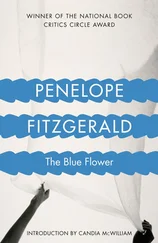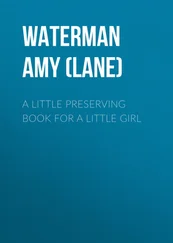Candia McWilliam - A Little Stranger
Здесь есть возможность читать онлайн «Candia McWilliam - A Little Stranger» весь текст электронной книги совершенно бесплатно (целиком полную версию без сокращений). В некоторых случаях можно слушать аудио, скачать через торрент в формате fb2 и присутствует краткое содержание. Год выпуска: 2011, Издательство: Bloomsbury UK, Жанр: Современная проза, на английском языке. Описание произведения, (предисловие) а так же отзывы посетителей доступны на портале библиотеки ЛибКат.
- Название:A Little Stranger
- Автор:
- Издательство:Bloomsbury UK
- Жанр:
- Год:2011
- ISBN:нет данных
- Рейтинг книги:3 / 5. Голосов: 1
-
Избранное:Добавить в избранное
- Отзывы:
-
Ваша оценка:
- 60
- 1
- 2
- 3
- 4
- 5
A Little Stranger: краткое содержание, описание и аннотация
Предлагаем к чтению аннотацию, описание, краткое содержание или предисловие (зависит от того, что написал сам автор книги «A Little Stranger»). Если вы не нашли необходимую информацию о книге — напишите в комментариях, мы постараемся отыскать её.
A Little Stranger — читать онлайн бесплатно полную книгу (весь текст) целиком
Ниже представлен текст книги, разбитый по страницам. Система сохранения места последней прочитанной страницы, позволяет с удобством читать онлайн бесплатно книгу «A Little Stranger», без необходимости каждый раз заново искать на чём Вы остановились. Поставьте закладку, и сможете в любой момент перейти на страницу, на которой закончили чтение.
Интервал:
Закладка:
Candia McWilliam
A Little Stranger
To Clara Henderson
On clear days I can see
Green acres, far below,
And the red roof where I
Was Little Trinculo.
There lies that solid world
These hands can never reach;
My history, my love,
Is but a choice of speech.
A terror shakes my tree,
A flock of words fly out,
Whereat a laughter shakes
The busy and devout.
Wild images, come down
Out of your freezing sky,
That I, like shorter men,
May get my joke and die.
‘Trinculo’s Song’, W. H. AudenChapter 1
She was positive.
‘No. Never. Not at all.’
‘And boyfriends? Or do you have someone in particular?’
She put her small hand up to her short neck, took strength from the goffered angora she found there, to fortify her against my too-direct question, and spoke.
‘I am engaged.’
I imagined the lock on an old-fashioned lavatory giving the same information, with similar blankness. But I do not mean to suggest she was vacant. I was pleased to observe her behaviour. I had always believed that simple people have more hope of virtue, not plotting to attain it in the complicated ways of the faulty and sophisticated.
‘You don’t wear a ring?’
‘I don’t wear jewellery for work. It can scratch the little skins.’ She made of children grapes, easily popped out of their plumpy skins.
I felt raisin-like myself that day, and very much older than the young woman whom I was interviewing for the post of nanny to my son.
She looked quite at ease in the tall pale room, but she was keeping her personality within the space she occupied physically. It was my room, filled with my books, my flowers, my way of being, into which she had not so much fitted as inserted herself, neatly, not in parenthesis but clearly marked by the pointed caret provided by her scent. It was a smell of blossom and powder, not pungent but very strong. It was as chemically pink as the wad of filling in a sweet biscuit.
For lunch I had eaten approximately seventy black olives, of the type which is wrinkled and black as tar on a summer road. I accompanied them with a jug of black coffee. My back teeth were sandy with its grounds. The girl had refused coffee or tea, saying she drank no stimulants.
‘None? Ever?’ I had asked, receiving that vehement triple negative, of which she was so certain. ‘No. Never. Not at all.’ She said that she and the boy — he was her age, twenty-two — would marry when they had saved for a house. He worked with animals, she said. She told me her father was a policeman, her mother a part-time teacher. It might be said that Solomon, my husband, also works with animals.
He was not usually able to come home in the middle of the day, though he did not have to go far for his work. Most days I ate a plateful of something he disliked for lunch, so we could share the sort of food — good plain food — he wanted for dinner. I would read at the same time as I ate, but never the periodicals which my husband might want to read in case they got spattered with smoked roes or raw steak or the vinegar of capers. Sometimes I even managed to find the gelatinous pinkish herring, ‘ haring ’, of my Dutch childhood. John would find me out at once. ‘Kissing a seal,’ he would say. Our child ate separately, real food of a nourishing and unsubtly appetising nature. His palate was too clean for the food I favoured. But his old nanny, who had kept his plate bright with planks of fish and discs of carrot and bright green peas, was going, and I must find a successor.
I could see nothing wrong with this girl. She was the first applicant for the job who was pretty. Children notice appearances. Her references were excellent and she had brought with her a small valise of toys and projects she had made for her last charges, of whom she also brought photographs. They appeared well maintained and happy.
She was a country girl, she said, so she would not be lonely in this house. We lived at the heart of possessed lush land, not near anywhere, a large working estate flanked by others.
‘There are nannies all around,’ I said. It was true. Just here, at this prosperous county’s rich core, children came like the seasons, annual, beautiful, and wanted in their time. Some of our neighbours had six children, none fewer than three. I, with just our son, was only beginning. The nannies came and went, their importance inexaggerable. All these children lived at a nannied remove from their parents. It kept both children and parents younger than their years. The benediction bestowed by money was to be seen all about. It was unquestioned as the fresh air.
Her name was Margaret Pride. She had become a nanny because she loved children, all children. I did not ask why, in that case, she had not become a nurse, to look after those children who need extra care, children not just less fortunate than my son, but also sick. There are people who cannot bear illness, seeing it as a weakness. She was short and I guessed that she had trouble with her figure. She had the round wrists and belted midriff of one who has trouble shifting the puppy fat which makes young women appear middle-aged before time. She had a clean look and was unexceptionably dressed, something I do not find easy to achieve. She looked as though she would be able to enter a chain store and select a co-ordinated outfit, and then only when her building society account would stand it. Over her angora piecrust-necked jersey she wore a suit jacket, teamed with its skirt, both the pale green of sherbet limes. Her shoes and handbag were the pale yellow-grey of destroyers seen from afar. They were of a style too old for her. The bag closed with the short locked tusks of a graminivore. Her legs ended in feet; there were no ankles.
‘I’m perfectly happy for you to wear jeans,’ I said. She turned her head and gave no grin at the incongruity of a woman only a few years older than herself and dressed as a scarecrow telling her she might dress casually.
‘I prefer to be neat,’ she said. She implied no criticism of my appearance. It was as though she accepted that my position as mother of her source of income, wife of her source of payment, gave me licence to dress as I pleased. I dressed as an ex-beauty, though it was not clear to me whether this was appreciated by others. I wore that day, as I almost always did by then, a pair of men’s jeans, a huge jersey and trodden-down party shoes. My dressing-room was full of duplications of this uniform.
‘I would be perfectly happy to wear a uniform,’ she said.
‘I don’t think we need go that far,’ I replied, and made a face whose message was that I would never impose the sort of behaviour which that implied on anybody. ‘But there is one thing I do mind about,’ I continued. I wanted to tell her I did not like her scent, but I didn’t have the stomach to say it.
‘Yes?’ she enquired.
A little disarmed by her eagerness to please, I became confiding. ‘I may not look it, but I am fanatically tidy, about drawers and clothes and food and the nursery and so on. Sort of the opposite to a whited sepulchre, I suppose; something like a blackened bassinet, or a. .’ Sometimes I talked too much, not having spoken to anyone for a time. When I did talk to people, they were frequently the wrong ones. I was abuzz with words, which would not always swarm about their proper hive. I was not often alone but I was never precisely more than accompanied.
Margaret gave a warm, calming smile. ‘Some people,’ she responded, ‘have said I am too tidy myself. I find it satisfying to see everything in its place. And I love lovely things. I’m like that.’
Читать дальшеИнтервал:
Закладка:
Похожие книги на «A Little Stranger»
Представляем Вашему вниманию похожие книги на «A Little Stranger» списком для выбора. Мы отобрали схожую по названию и смыслу литературу в надежде предоставить читателям больше вариантов отыскать новые, интересные, ещё непрочитанные произведения.
Обсуждение, отзывы о книге «A Little Stranger» и просто собственные мнения читателей. Оставьте ваши комментарии, напишите, что Вы думаете о произведении, его смысле или главных героях. Укажите что конкретно понравилось, а что нет, и почему Вы так считаете.
